New Products
-
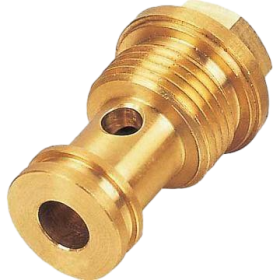
Custom Turn-Mill Combination brass parts
-
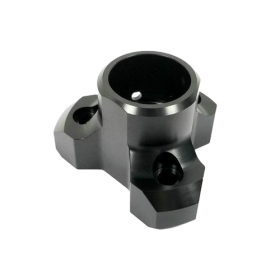
Custom Turn-Mill Combination parts
-
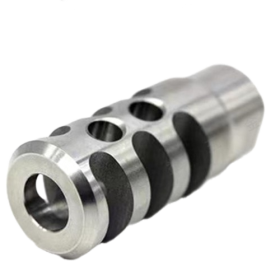
Precision CNC Turning Parts Stainless Steel shaft accessories
-
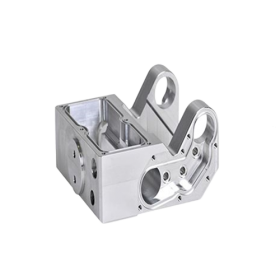
Custom CNC Milling Automated Machinery and Equipment Parts
-
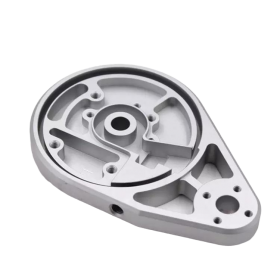
OEM/ODM Custom High Precision Metal CNC Machining/Milling/Turning Service CNC Turning Part
-
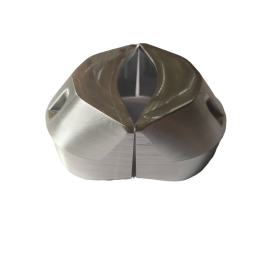
Precision CNC Milling Robotic Arm parts
Applications of CNC Machining in Various Industries
In the modern manufacturing panorama, Computer Numerical Control (CNC) machining has unfurled as a game-changing technology, seeping into a vast range of industries and revolutionizing component fabrication. This article delves deep into its multifarious applications across diverse sectors, spotlighting its significance, adaptability, and the value it imparts to production workflows.
Automotive Industry: Precision at the Core
The automotive sector stands as one of the prime beneficiaries of CNC machining. In vehicle production, precision is an absolute must, as even the minutest variance can trigger performance glitches or safety risks. CNC machines are deployed to fashion engine components – think cylinder heads, pistons, and crankshafts – with microscopic precision. These parts must endure extreme temperatures, pressures, and mechanical strains, and CNC machining guarantees they adhere to the exacting specifications necessary for peak performance and durability.
What’s more, the manufacturing of transmission systems, incorporating gears and shafts, leans heavily on CNC technology. Gears need to feature precise tooth profiles and tolerances to ensure seamless power transfer between differentials and axles. CNC machining empowers manufacturers to churn out complex gear geometries that boost the overall efficiency of the vehicle’s drivetrain, curbing energy wastage and operational noise.
Aerospace Industry: Soaring with Precision
When it comes to aerospace, the stakes are sky-high. The safety and dependability of aircraft hinge on the flawless performance of every single component. CNC machining plays a starring role in fabricating vital aerospace parts such as turbine blades, wing spars, and fuselage components.
Take turbine blades, for example. They’re subjected to intense centrifugal forces and searing temperatures within the jet engine environment. CNC milling and grinding processes are harnessed to sculpt these blades with extraordinary precision, ensuring they possess the correct aerodynamic profiles and material integrity to brave the brutal operating conditions. Wing spars, which furnish structural support to the wings, are also fabricated via CNC machines to meet exacting weight and strength prerequisites, bolstering the aircraft’s airworthiness.
Medical Industry: Saving Lives with Precision Tools
In the medical domain, CNC machining has unlocked novel prospects for the production of life-saving devices and implants. Prosthetics, orthopedic implants, and surgical instruments are just a few illustrations of its applications.
For patients in need of prosthetic limbs, CNC machining permits custom-fit designs that mimic the natural movement and functionality of the human body. By leveraging patient-specific scans and advanced CAD/CAM software, manufacturers can fabricate prosthetics with pinpoint contours and biomechanical properties, enhancing the patient’s quality of life and mobility. Orthopedic implants, like hip and knee replacements, demand exceptional precision to integrate smoothly with the patient’s bone structure, minimizing the risk of rejection and ensuring long-term stability.
Surgical instruments, too, profit from CNC machining. Scalpels, forceps, and drills are crafted with razor-sharp edges and accurate dimensions, affording surgeons the ability to conduct delicate procedures with heightened precision and control, slashing the likelihood of surgical errors.
Electronics Industry: Miniaturization and Precision
The electronics industry is in a perpetual state of flux, driven by the pursuit of smaller, more potent devices. CNC machining is pivotal for producing the elaborate components that power our smartphones, laptops, and other electronic gizmos.
Printed circuit boards (PCBs), the nerve center of electronic devices, are fabricated using CNC milling and drilling techniques. These processes carve out precise traces and holes for mounting electronic components, ensuring proper electrical connectivity. Microchips and semiconductor wafers also lean on CNC lithography and etching processes to fashion microscopic circuits and transistors, facilitating the miniaturization of electronics while maintaining high performance benchmarks.
Automation Industry: Powering Smart Manufacturing
In the burgeoning automation industry, CNC machining is the bedrock of smart production lines. Robots, automated machinery, and industrial control systems all rely on precisely machined components to function optimally.
CNC machines are used to fabricate robot joints, grippers, and end-effectors with exacting tolerances. These parts need to move with pinpoint accuracy and repeatability, enabling robots to perform tasks ranging from delicate assembly work to heavy lifting with utmost precision. In industrial control systems, CNC-machined housings and connectors ensure reliable electrical and mechanical connections, safeguarding against signal interference and component misalignment.
Moreover, as factories transition towards Industry 4.0 and the Internet of Things (IoT), CNC machining enables the production of smart sensors and actuators. These devices, which collect and act on data in real-time, require miniature, highly accurate components. CNC technology allows manufacturers to meet these demands, facilitating seamless integration into automated systems and enhancing overall production efficiency and quality control.
Conclusion
CNC machining has indisputably become an essential asset across a broad spectrum of industries. Its knack for delivering precision, repeatability, and versatility has revolutionized manufacturing processes, empowering companies to churn out top-notch products that meet the most exacting standards. As technology hurtles forward, we can anticipate CNC machining playing an even more prominent role, unlocking fresh avenues for innovation and expansion in various sectors.


 Evan Xiao
Evan Xiao